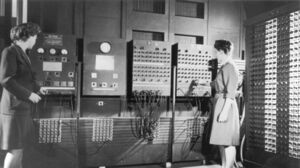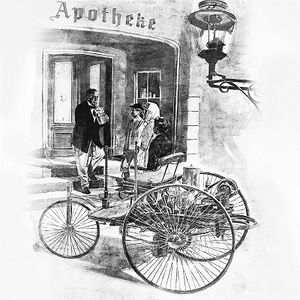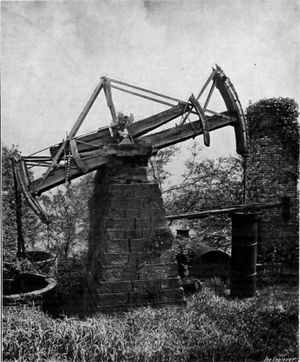National History Day

Technology, engineering, science, and innovation profoundly affect the way we live and interact with society, and changes and developments in these technologies are equally profound in the way they affect society. The Engineering and Technology History Wiki (ETHW) documents the history of these technological turning points. With categories that range from computing and electronics to energy, ETHW’s collections delve into the people, discoveries, and movements behind history’s most innovative technological advances. As the premier global record dedicated to preserving and interpreting the history of technological innovation, the ETHW encompasses centuries of engineering and technological history.
A handful of the major turning points in technological history that have profoundly affected society include:
- The Newcomen Steam Engine, invented in 1712, often considered the first practical steam engine, one of the triggering events of the Industrial Revolution
- The electrical battery, developed in 1799 by Alessandro Volta, the first electrical battery that was a major step in the study of electromagnetism and in the development of electrical equipment
- Maxwell's equations, first formulated between 1860-1871 by James Clerk Maxwell and later simplified by Oliver Heaviside, provided a mathematical framework for the physics of electromagnetism
- The gasoline engine, which was patented by Daimler in 1886
- The ENIAC, or Electronic Numerical Integrator and Computer, completed in 1946, one of the earliest electronic digital computers
- The computer language compiler, developed by Grace Hopper in 1952, a major milestone in computer software
- Very Large-Scale Integration, pioneered by Lynn Conway and Carver A. Mead in 1978, a process which miniaturized transistors, combining millions, and later billions, on a single chip, enabling the technology to produce pocket-sized computers like smartphones
Resources
The ETHW contains a great deal of archives, collections and resources which can be used for National History Day, including:
- a technology timeline, displaying important events in all engineering disciplines from antiquity to the present
- more than 900 oral histories, interviews with some of technology's most important figures
- more than 275 first-hand histories, a collection of fascinating personal memoirs an anecdotes
- thousands of encyclopedia style articles written on the people, technologies and corporations that have driven progress through the ages
- thousands of scanned archival documents and hundreds of hours of audiovisual material
- an innovation map, which plots the locations of major engineering Milestones and Landmarks across the globe
Contact us
If you would like to contact us, you can reach the site administrators by using the contact form.

